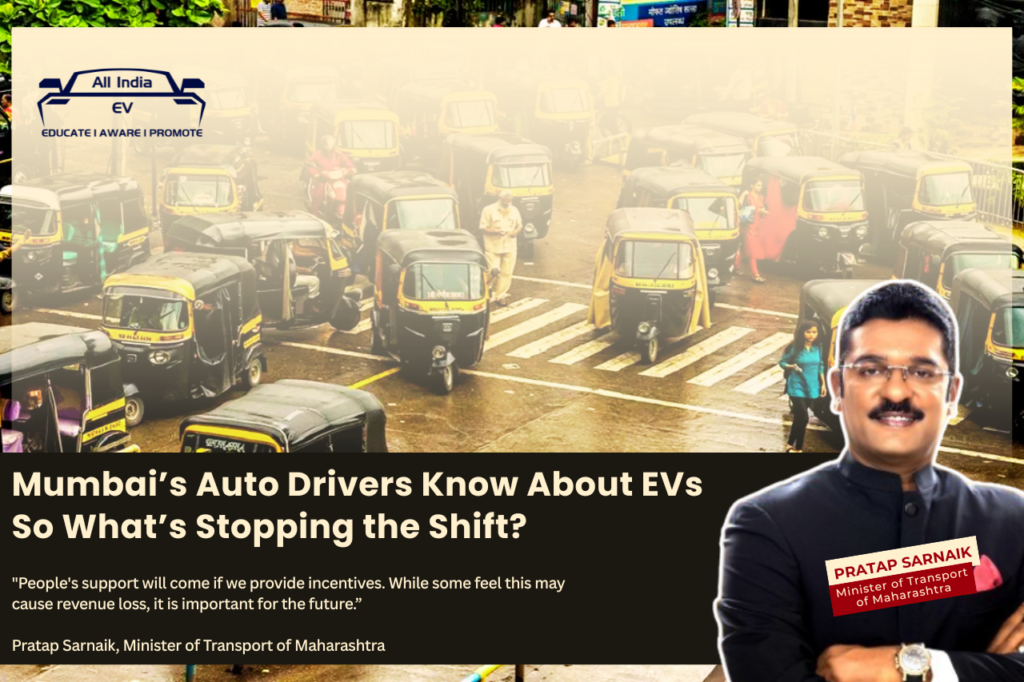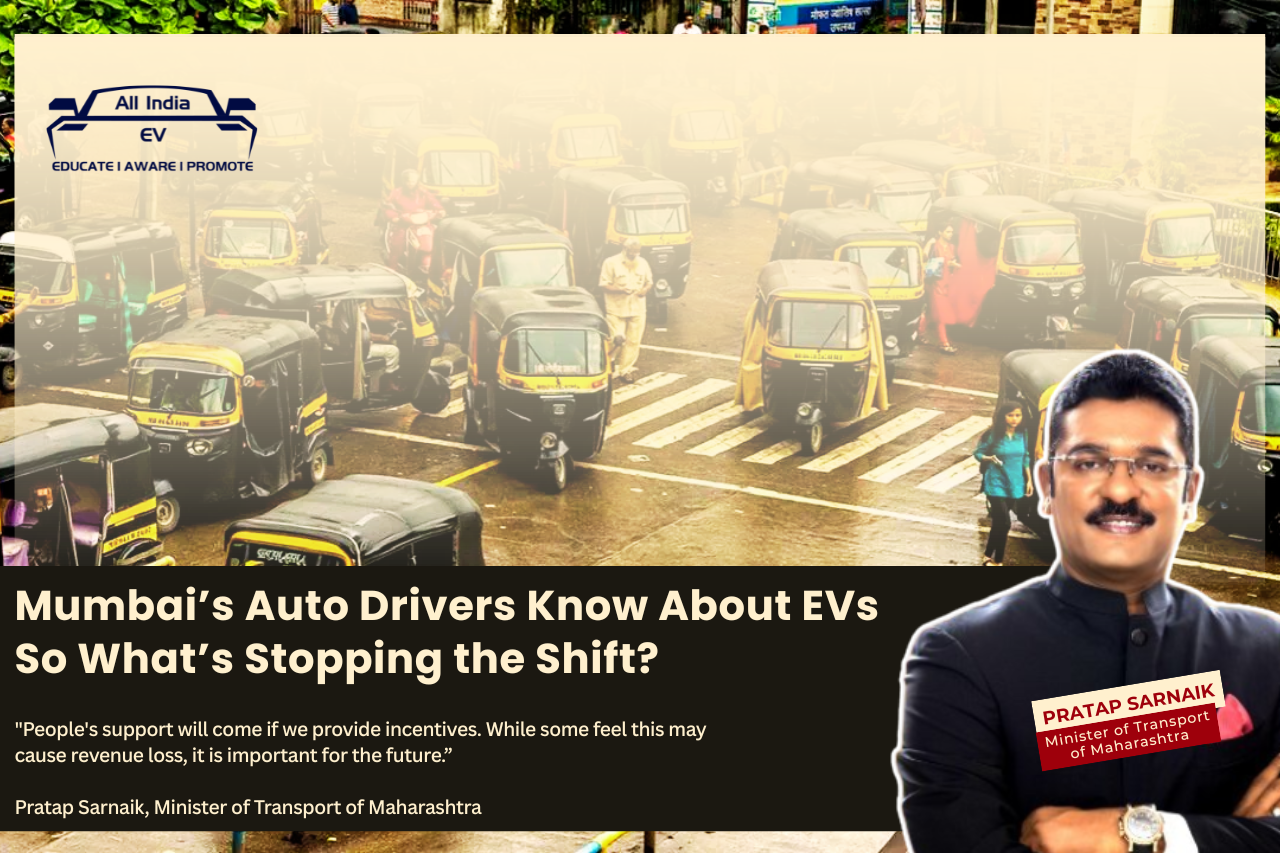
Wheels of Change Report on EV Adoption for Mumbai’s Auto & Taxi Drivers Launched on World EV Day by Minister Sarnaik
A new survey has revealed that while 85% of Mumbai’s auto-rickshaw and taxi drivers are aware of electric vehicles (EVs), only a small fraction are ready to switch. The findings highlight cost, infrastructure gaps, and operational concerns as the main barriers to adoption.
Survey Findings
The report, titled “Wheels of Change: Understanding EV Adoption for Mumbai’s Auto & Taxi Drivers”, was released on World EV Day by Maharashtra Transport Minister Pratap Sarnaik. Conducted across all 24 wards of Mumbai, the study surveyed 1,200 drivers (55% autorickshaw drivers and 45% taxi drivers).
Prepared by Waatavaran Foundation, Climate Research Consultancy, and Asar Social Impact Advisors with support from the Sustainable Mobility Network, the report provides crucial insights into drivers’ perspectives on EV adoption.
According to the study:
- 85% of drivers know about EVs.
- 39% believe EVs offer better performance and lower running costs.
- 60% cite high upfront purchase costs as a key barrier.
- 62% highlight the lack of charging infrastructure as the biggest deterrent.
- Concerns also include range limitations and high battery replacement costs.
Government’s Push for EV Adoption
Speaking at the launch, Minister Pratap Sarnaik said the survey findings align with the state’s EV policy goals. Maharashtra aims to ensure 30–40% of vehicles on the road are electric within the next decade.
“People’s support will come if we provide incentives. While some feel this may cause revenue loss, it is important for the future,” Sarnaik said. He added that the government is considering new policies, including requiring proof of parking space before registering new vehicles.
The minister also emphasised the importance of partnerships with industry leaders such as Tata and Mahindra to expand charging infrastructure and build public trust in EVs.
Recommendations and Road Ahead
The study recommends:
- Fast-charging and battery-swapping networks.
- Simpler access to subsidies and financial support.
- Dedicated EV parking zones in high-demand areas.
- Policy stability to boost confidence among drivers and investors.
- Despite challenges, the report notes growing openness among drivers. 39% expect EVs to improve earnings, and nearly half expressed interest in training programs to adapt to EV technology.
The findings suggest that with the right policy measures, infrastructure development, and financial support, Mumbai’s auto and taxi drivers could play a pivotal role in accelerating India’s EV transition.










